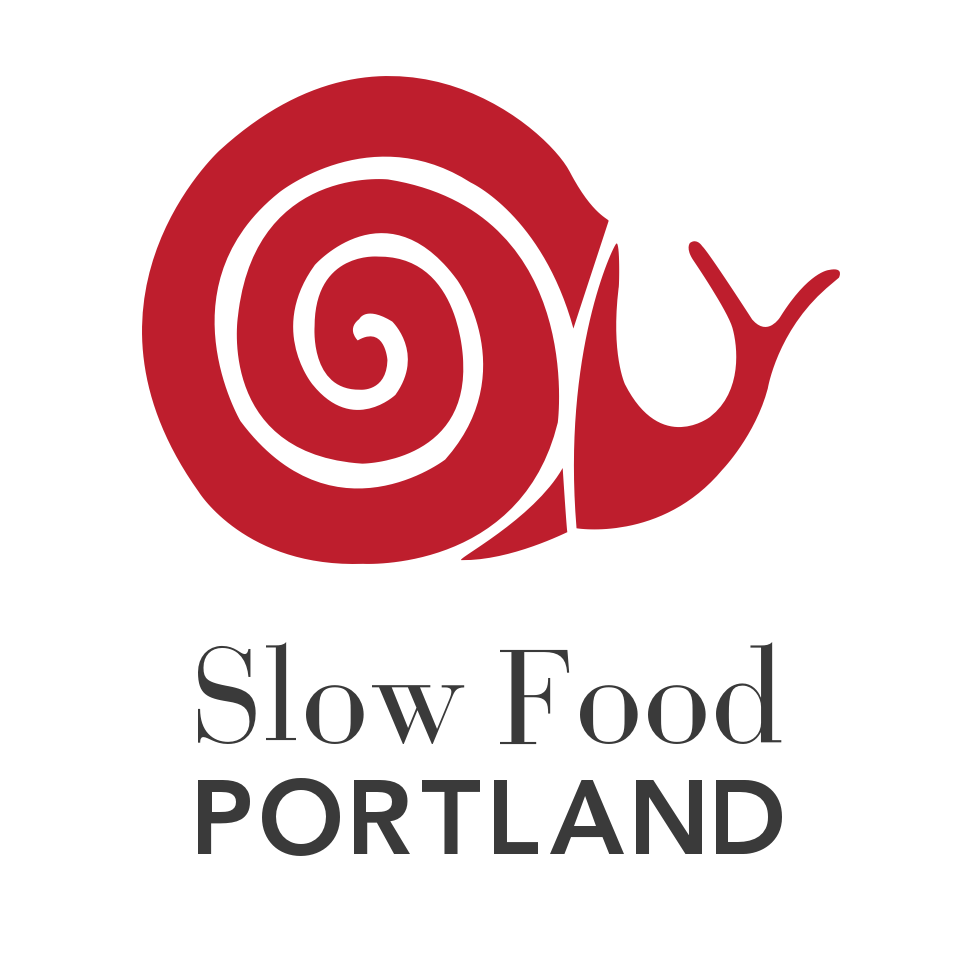April Olive Oil Convivium Recap
It was hard to find a seat at the April 17th Convivium, as people filled up Portland Cookshop for “Olive Oil: Field Notes from Oregon and Italy,” featuring local food friends Jim Dixon of Wellspent Market and Paul Durant of Durant Vineyards and Durant Olive Mill.
Olive oil has been treasured in other countries for centuries, used to cook and flavor food, fuel lamps, and anoint the body. Americans' interest is far more recent, especially in extra-virgin olive oil--the finest, most flavorful oil produced by physical means without the use of chemicals or excess heat. Neither Paul nor Jim grew up with a bottle of this kind of oil as a household staple, as kids in other parts of the world might have, but both came to prize it as adults.
Jim once thought all oils were about the same, but a trip to Italy in the 1990s turned him around. He and his wife Judith stumbled upon a restaurant whose owners grew their own food and olives, and he tasted fresh, extra-virgin olive oil for the first time and was smitten. He shipped home a couple of cases and sold some just to cover the costs. Soon enough, he was providing Portland restaurants with gallons of great oil weekly. Wellspent now stocks oil from several small producers in Italy, Sicily, and Spain.
Paul’s family was one of the first to grow wine grapes in the Dundee Hills, in 1973. They planted their first olive trees in 2005, but those original trees were wiped out by a freeze. Paul rejoined the business in 2010 when they planted more trees—most of which were killed off by another frost in 2013. “Anytime there’s a freeze threat, I cross my fingers,” he says. “But olive trees are absolutely amazing—I love growing them.” His hardiest trees were grown from cuttings from Italian trees that had survived a hard frost, and they also have some Ukrainian varietals that are flourishing. There are thousands of varieties because olives have been cultivated for such a long time, but it’s tricky to import them into the United States.
Like wine, the flavor of olive oil can vary by cultivar—there are some 900 cultivars used--, weather, harvest and production practices, and local soils and growing conditions. Some oils are mild and fruity, some are bitter, some are pungent. Oregon olive oil tends to be more bitter and viscous, and we now have about a dozen small olive oil producers.
Wellspent always offers a variety of flavorful oils for customers to taste. “I use it on everything that requires fat,” Jim says. He even uses it for cooking at high temperatures and points out that Sicilians deep fry with olive oil, though he cautions that heating to the smoking point is ill advised for any oil. He bristles at recipes that warn people that the strong flavor might affect the taste of a dish. “It just makes it taste better!”
Paul also enjoys olive oil on a wide variety of foods, but his favorite pairing is with seafood. “My favorite is with salmon,” he says. “I put olive oil and garlic on the salmon a few hours before grilling, then I’ll use more oil after it’s cooked. I like the koroneiki oil for this—it’s very peppery and has a fragrance that’s almost like a tomato vine.”
Paul and Jim recommend that we look for a production date on extra-virgin oil, protect it from light and air, and use it within a few months. No point saving it for a special occasion, as good oil will make even the humblest ingredients and meals taste special.
